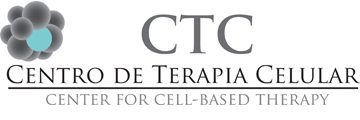The Center for Cell-based Therapy (CTC) is made up of a group of researchers of USP and of the Regional Blood Center of Ribeirão Preto who are interested in understanding the biology of stem cells, as well as in developing new technology for their use in the treatment of diseases. The group of researchers engages physicians, biologists, biomedical professionals, pharmacists and veterinarians, among others, that work together since 2000.
The researchers at CTC were responsible for the generation of the first embryonic stem cell line in Brazil and produced one of the first bovine and ovine clones in the country.
In the laboratory, CTC researchers have interest in signaling pathways of mammalian and human embryonic stem cells, in animal and human adult cells reprogramming to the embryonic state of pluripotency (iPS cells) and in the functioning of adult stem cells, such as hematopoietic, mesenchymal and cancer stem cells.
From stem cells derived from health people, CTC scientists investigate ways of producing blood components as an alternative source of blood transfusion. In the laboratory, other researchers use iPS cells derived from patients with blood disorders to better understanding how these diseases happen and how they could be prevented or better treated.
In the clinical area, researcher-physicians develop new methods of diagnosis and new treatment for leukemia, and also use new stem cells, like mesenchymal stem cells, for the treatment of many diseases, such as diabetes mellitus, systemic sclerosis and aplastic anemia. CTC relies upon laboratories of cell and molecular biology and cell culture and inpatient units of hematopoietic stem cell transplantation in Ribeirão Preto, Pirassununga and São Paulo.
Research conducted within the Cell Therapy Center, USP (CTC) as bring benefits to Brazilian society the possibility of obtaining more efficient medications, developed with Brazilian technology.
The group develops to 15 years research related to production factor FVIII and FIX coagulation using human cells. In this period excellent results were obtained, which resulted in two patents for FVIII, one for FIX, and one for FVII.
Among the advances made, in the past few years, divulged by the press and scientific journals, we highlight: the development of a platform for expanding genetically modified T cells for treating patients with leukemia and lymphomas; the discovery of the onset of X chromosome inactivation during human embryonic development; the advances in the treatment of systemic and multiple sclerosis; the new perspectives on fighting one of the most aggressive types of brain tumor, astrocytoma; the inhibition of melanoma cells in culture; studies on telomeres; and the formation of a cell bank with the genetics of the Brazilian population.
